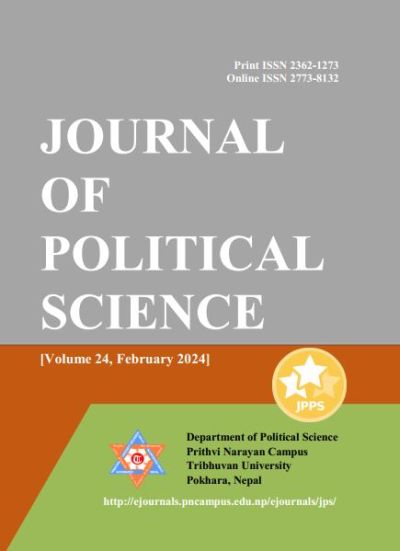Exploring the Relationship between National Security Risks and Economic Factors: A Nepalese Perspective
DOI:
https://doi.org/10.3126/jps.v24i1.62853Keywords:
Critical political economics, cyber security, foreign aid, national security, remittanceAbstract
Macroeconomic variables have a significant impact on national security. This article examines the intricate association between macroeconomic variables and national security, emphasizing the bottomless effects of economic factors on individual vulnerability to national security risks. The evolution of conventional and unconventional power, encompassing both hard and soft power, has taken on a hybrid form central to national security considerations. In today’s globalized world, economic variables have become pivotal in shaping national security threats. Employing the Critical Political Economic Approach (CPE), the study focuses on Nepal as a case study to analyze the interplay between economic determinants and national security risks. The findings indicate that the expansion of trade, financial services, FDI, migration, and remittances both positively and negatively influences national security concerns, whereas growth in poverty and inequality, foreign aid and loans, crises, corruption, critical ICT infrastructures, and cyber risks heighten threats to Nepal's security. The study suggests that fostering strong economic conditions and positive trends can mitigate the likelihood of national security incidents.
Downloads
Downloads
Published
How to Cite
Issue
Section
License

This work is licensed under a Creative Commons Attribution-ShareAlike 4.0 International License.




